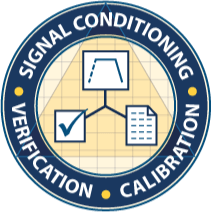LP4FP & LP8FP Flat/Pulse Low-Pass Filter Technology
You Want Your Analog Data to Come Clean Before Digital Conversion
Precision Filters' signal conditioning systems offer a variety of high-performance filter characteristics for high-pass, low-pass, or band-pass filtering.
28000 System Filter Characteristics
Flat/Pulse Low-Pass Filters
Our choice of LP4FP 4-pole or LP8FP 8-pole flat/pulse low-pass filters provides the user with the versatility to address applications in either the time or frequency domain.
Flat Mode Low-Pass Filters
Precision LP4F and LP8F flat mode characteristics are specified to have outstanding passband flatness equivalent to the Butterworth yet deliver roll-off characteristics that are superior to the Butterworth response.
The LP4F and LP8F are excellent choices for anti-aliasing and for applications such as spectral analysis. The LP8F has zero passband ripple and over 100 dB/octave attenuation slope.
Pulse Mode Low-Pass Filters
For the time domain, there are the LP4P and LP8P pulse mode low-pass filters. These filters have excellent transient response and phase linearity making them ideal filters for time domain applications including transient (shock) measurements and time-domain waveform analysis. The LP4P and LP8P roll-off characteristics are superior to their Bessel filter counterparts.
High-Pass and Band-Pass Filters
For high-pass filtering, we offer the HP4F 4-pole and HP8F 8-pole characteristics. For band-pass filtering, choose the HP4F/LP4FP band-pass characteristic to provide programmable bandwidth and center frequency filters. For more selective band-pass filtering, cascade an HP8F with an LP8F.
Other Filters
We also offer a 6-pole, 6-zero characteristic (LP6FP) for our flat and pulse mode filters. We can also provide traditional filter characteristics such as Butterworth and Bessel types … just ask!
Regardless of which filter you chose, you can be assured that a “Precision Filter” will have very tightly controlled response with better than 0.1 dB adherence to the theoretical amplitude characteristic and better than 1 degree channel-to-channel phase match.

Verification at Test Time
Continual setup, tear down and reconfiguring of sensitive test equipment demands a rigorous protocol to prove that every channel is operating correctly at test time. The 28000 System provides a layer of built-in verification and validation capability to confirm proper operation of the measurement system including sensor and cable. Upon completion of the verification testing, a status report is provided as a defendable means to document system validity at the time of the actual test.
Yearly Calibration
All test systems require periodic calibration. The Precision 28000’s automated built-in test capabilities allow the user to perform convenient, affordable NIST traceable yearly calibration tests on-site without removing the system from the equipment rack. This eliminates the need for expensive off-site calibrations and system downtime.
Learn more about 28000 NIST Traceable Testing >
